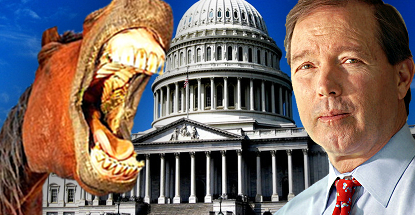 Two US congressmen have introduced legislation that would eliminate online wagering on horseracing, a move that has racing proponents crying foul.
Two US congressmen have introduced legislation that would eliminate online wagering on horseracing, a move that has racing proponents crying foul.
The bipartisan pair of Senator Tom Udall (D-NM) and Representative Joe Pitts (R-PA) have introduced a pair of bills that would repeal the Interstate Horseracing Act of 1978, which allowed off-track betting and (eventually) online advance deposit wagering. These two channels currently account for around 90% of the $11b wagered annually in the 38 states that allow the practice.
Udall (pictured) says he and Pitts want to end “horseracing’s sweetheart gambling privileges” because of the industry’s inability to eliminate the “chronic abuse of performance-enhancing drugs” by “unscrupulous trainers, owners, veterinarians and other race track officials.” Over 7k horses have died on US racetracks since 2008, an “alarming” statistic that Udall believes is “likely caused by the misuse of permitted medication and abuse of illegal drugs.”
New Mexico’s racing industry has routinely been singled out as one of the country’s more egregious violators of doping rules, as evidence by their high body count. In 2012, a scathing New York Times report reported nine fatalities in 13 days at just one New Mexico track.
Reaction from racing has been swift. National Thoroughbred Racing Association CEO Alex Waldrop called the legislation “a shameless publicity stunt that mischaracterizes one of the nation’s most highly regulated sports.” James Gagliano, president of The Jockey Club, said his group was “disappointed” by the legislation. Gagliano called the 1978 bill “the lifeblood of the industry and we strongly oppose any effort to repeal it.”
Good intentions aside, Udall and Pitts’ legislation stands zero chance of passing. Racing has powerful federal protectors, who are at this moment trying to ban racing’s online competition, and can be counted on to keep Udall and Pitts’ legislation in congressional limbo. Still, nice to see racing’s privileged and protected interests sweat, even just a little.
